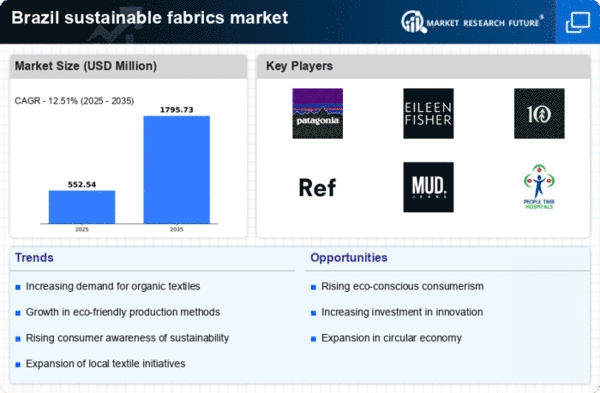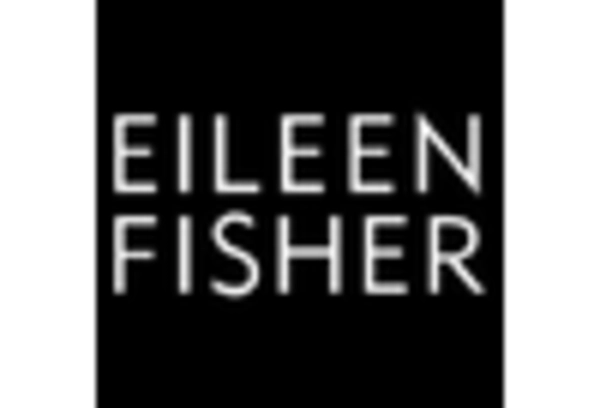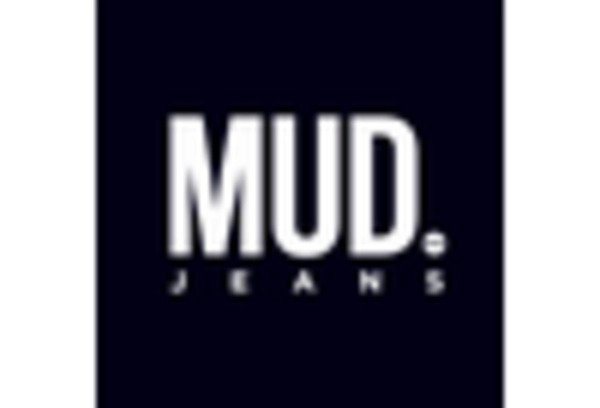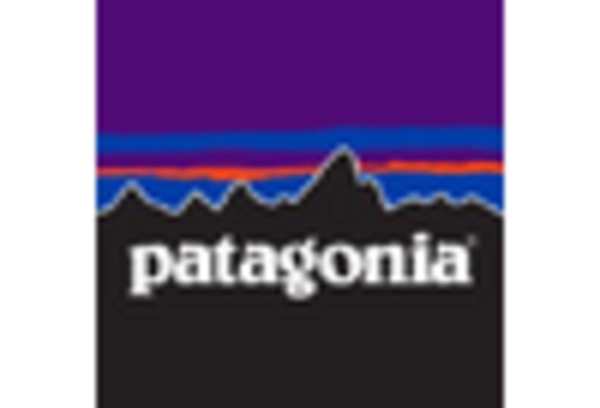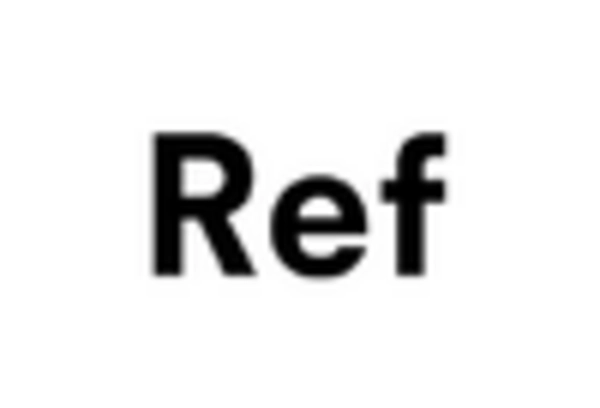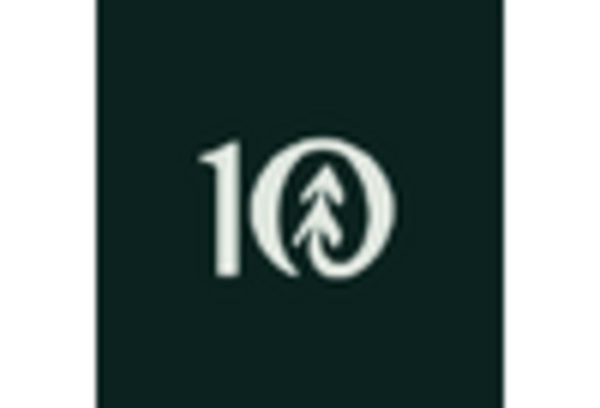The sustainable fabrics market in Brazil has a dynamic competitive landscape, driven by increasing consumer awareness of environmental issues and demand for eco-friendly products. Key players such as Patagonia (US), Eileen Fisher (US), and Tentree (CA) are strategically positioned to leverage these trends. Patagonia (US) emphasizes innovation in sustainable materials, focusing on recycled fabrics and organic cotton, while Eileen Fisher (US) has adopted a circular economy model, promoting take-back programs and sustainable sourcing. Tentree (CA) differentiates itself through its commitment to reforestation, planting ten trees for every item sold, which resonates with environmentally conscious consumers. Collectively, these strategies not only enhance brand loyalty but also shape a competitive environment that prioritizes sustainability and ethical practices.In terms of business tactics, companies are increasingly localizing manufacturing to reduce carbon footprints and optimize supply chains. The market appears moderately fragmented, with numerous players vying for consumer attention. However, the influence of major companies is significant, as they set benchmarks for sustainability and innovation that smaller firms often strive to emulate. This competitive structure fosters a landscape where collaboration and partnerships are becoming essential for growth and market penetration.
In October Patagonia (US) announced a partnership with a Brazilian textile manufacturer to produce a new line of biodegradable fabrics. This strategic move not only enhances Patagonia's product offerings but also aligns with its commitment to reducing environmental impact. By localizing production, the company aims to minimize transportation emissions and support local economies, which could potentially strengthen its market position in Brazil.
In September Eileen Fisher (US) launched a new initiative aimed at increasing transparency in its supply chain, providing consumers with detailed information about the origins of its fabrics. This initiative is significant as it addresses growing consumer demand for accountability and ethical sourcing. By enhancing transparency, Eileen Fisher (US) not only builds trust with its customer base but also sets a precedent for industry standards in sustainable practices.
In August Tentree (CA) expanded its product line to include a range of sustainable activewear, responding to the rising trend of eco-conscious fitness. This expansion is strategically important as it allows Tentree (CA) to tap into a growing market segment while reinforcing its brand identity centered around sustainability. The introduction of activewear could potentially attract a broader audience, further solidifying its market presence.
As of November current trends in the sustainable fabrics market indicate a strong emphasis on digitalization, with companies increasingly utilizing AI to optimize production processes and enhance customer engagement. Strategic alliances are shaping the landscape, as firms collaborate to share resources and expertise in sustainability. Looking ahead, competitive differentiation is likely to evolve, shifting from price-based competition to a focus on innovation, technology integration, and supply chain reliability. This transition suggests that companies that prioritize sustainable practices and technological advancements will be better positioned to thrive in an increasingly eco-conscious market.


